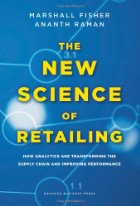Private ratings, public regulation: credit rating agencies and global financial governance (EBOOK)
Credit rating agencies play a powerful and highly contentious role in the governance of global financial markets. In the decades before the Global Financial Crisis of 2007-10, market actors as well as public regulators came to increasingly rely on the credit risk assessments provided by private rating agencies. States and international bodies made use of credit ratings for a range of regulatory purposes, thus transferring (quasi- )regulatory authority to the agencies. This book introduces an original neoinstitutionalist framework to explain common trends and cross-country differences in the transfer of (quasi- )regulatory authority to rating agencies and to analyze regulatory reforms after the Financial Crisis. The proposed framework helps to account for state-sanctioned and bolstered modes of private governance far beyond the case of ratings-dependent regulation. It therefore contributes to a better understanding of the changing role of the state and the causes and conditions of the transfer of political authority to private actors.




